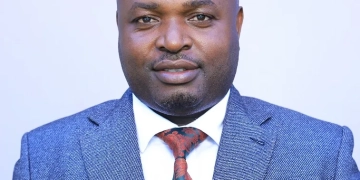In 2011, Uganda joined the Global Partnership for Education, an organization that creates access to education in developing countries. Since then, the nation has launched initiatives on everything from helping girls stay in school while menstruating to guaranteeing education for refugees.
Indeed, education is a key element in eliminating poverty in Uganda. It’s no wonder that the national adult literacy rate rose from 68.1 percent in 2002 to 73.8 percent in 2015—and the literacy rate among youth soars at 87 percent.
Though 90 percent of children attend a primary school that drops below 25 percent in secondary school due to facility shortages. This disparity contributes to continued poverty, as those without a secondary education have lower chances of pursuing careers.
Space is a major factor in the future of education in Uganda, especially in the face of conflict in Sudan. Uganda accommodates more than one million refugees, more than half of whom are children.
Last year, Bidi Bidi became the world’s largest refugee settlement, with around 270,000 occupants. The people of Uganda are as passionate about keeping others safe as they are about educating them—but to excel at both, the nation must implement plans to find a balance between the two.
Though Uganda highly values education, some internal issues have stunted its growth. Funding is a key issue. Uganda relies largely on international aid when it comes to supporting refugees’ basic needs—but, so far, the U.N. has obtained just 14 percent of the $781 million it requested to funnel into resources for Sudanese refugees, including education.
Teacher absenteeism is another barrier to education growth in burgeoning Uganda. Due to low and delayed pay, many teachers are forced to take on additional jobs, and classrooms are often left without distinct leaders—which isn’t surprising, given that the nation’s youth outnumber its adults.
The Ugandan government and Promoting Equality in African Schools (PEAS) are working to dismantle these inefficiencies in the education system. The groups have launched an initiative to assess and correct the quality of education and school management in 21 schools.
The initiative plans to refine curriculum and teaching standards but first requires some basic resources—including a reliable source of electricity.
While the steps necessary to improve education in Uganda may seem staggering, the cause looks brighter every day. Last month, a refugee solidarity summit held in Kampala garnered $358.2 million in pledges, which will provide resources for education.
Though the cracks are beginning to show in the school system, passionate citizens and government officials refuse to let it crumble. With concerted efforts, education in Uganda can continue growing in size, scope, and merit.
Madeline Forwerck










Discussion about this post